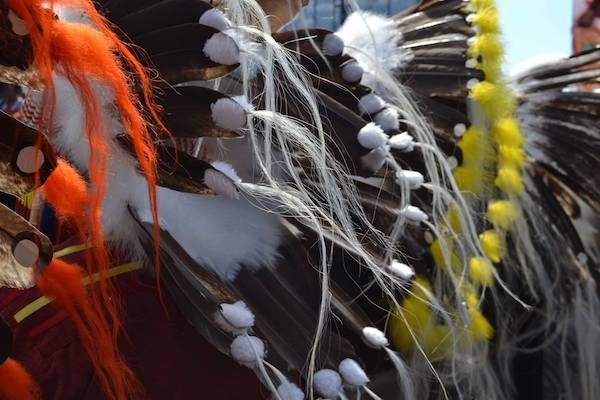
The Northern Inter-Tribal Health Authority’s (NITHA) medical health officer is reiterating the importance of COVID-19 preventative measures specifically in First Nations communities where an outbreak is more likely to occur.
Dr. Nnamdi Ndubuka and others in NITHA’s public health unit have reported three cases of COVID-19 so far within its communities. NITHA is a partnership between the Prince Albert Grand Council, Meadow Lake Tribal Council, Peter Ballantyne Cree Nation and Lac La Ronge Indian Band.
James Smith Cree Nation Chief Wally Burns sent out a public notice on Sunday disclosing the community had its first case.
The person is in their 40s. He or she was tested on Friday after developing COVID-19 symptoms and is now self-isolating at home.
James Smith Health Clinic staff are working with NITHA to notify others who could have been exposed to the virus.
“At this time, prevention remains the best way for community members to protect themselves. It is critical that residents take precautions to protect themselves against respiratory illness. We urge community members to follow the precautions outlined by public health officials,” read the notice.
James Smith Cree Nation is located 58 km east of Prince Albert. According to its website, the community has a population on 3,142, with 1,892 people living on-reserve.
“Given that some (First Nations) are rural or remote, they have a higher risk of getting an outbreak within this pandemic,” said Ndubuka.
He outlined the “very real challenges” these communities are facing.
“Most our communities have housing issues and access to health services is also challenging,” he emphasized.
“We also continue to have challenges with regards to getting the personal protective equipment for our health staff in the community to be able to provide care for those that need them.”
Some communities, such as Peter Ballantyne Cree Nation and Pelican Narrows, entered into a community lockdown last month. Members are not allowed to leave, and only emergency personnel are granted access.
Ndubuka thanked the community leadership for their efforts: “It’s really commendable.”
“To the community members, I would like to say let’s all continue to abide by those public health measures,” he said. “We know that they are working: The hand washing, the physical distancing, staying at least two arms lengths apart of each other.”
“If we do it now, then we will have a lot to gain.”
Following the announcement of a positive case in James Smith Cree Nation, Federation of Sovereign Indigenous Nations Chief Bobby Cameron said everyone must do their part to stop the spread of COVID-19.
“Let’s pray together, stay in our homes and care for our most vulnerable. We must protect our elderly and keep our children, grandchildren and great grandchildren safe and healthy,” he said.
“We are working hard to address and fight this invisible enemy.”
Meili calls on province to provide more support for First Nations and Métis communities
On Friday, Saskatchewan NDP leader Ryan Meili said the province isn’t doing enough to support First Nations and Métis communities throughout the pandemic.
Meili said these communities are often faced with crowded housing, higher levels of poverty and illnesses like diabetes that can make it harder to handle a COVID-19 infection.
“We are hearing from communities questions about housing, about food security and about how they’re going to operate in terms of testing and tracing to find COVID-19 as well as to respond to cases when they do emerge,” he said.
Meili suggested the province involve leaders “in a more meaningful way” in the planning and response to the pandemic, including ramping up testing and tracing in rural areas.
Premier Scott Moe said he’s been speaking with Cameron regularly. One topic of discussion in a call late last week was on-site testing kits for rural areas.
“There’s a feeling that there hasn’t been enough of these kits provided,” said Moe on Monday.
“We would just encourage all people in the province of Saskatchewan, whether you are in an Indigenous community or otherwise, that the 811 HealthLine is open to you. You can be referred to a test. They can advise you to the closest area where that testing will occur.”
He said there’s over 40 testing sites across Saskatchewan.

